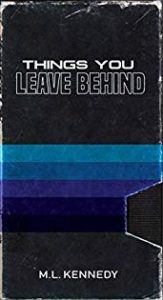
I still remember the thrill of intrigue I felt the first time a polar bear turned up on Lost. The story was already bizarre; I’d been introduced to the wreckage of an airplane, an unseen monster, and a cast of untrustworthy characters with compelling backstories. By the time the polar bear turned up, I was hooked for the long haul: these were mysteries so inscrutable that I couldn’t hazard any explanation myself. I’d have to stick around to get the answers I now craved. I stuck around for all six seasons and, like most loyal viewers, was finally disappointed by the result.
Puzzle box mysteries, as they are colloquially known, distinguish themselves from the horror and crime stories from which they have evolved by a commitment to blowing your mind. First they draw their audiences in with a complex story riddled with situational shock-and-awe, and then they knock you over with a perfect resolution that ties up these dozens of tightly knotted threads. The typical questions speculative stories pose (what supernatural horror is lurking in the sewers, or who is capable of murder most foul and why?) are upended by a secondary thrill: will the writers stick the landing? Will the ending make sense? And often, as in the case of Lost, the ending does not. It falls, perhaps, somewhere between incomprehensible and disappointing.
Puzzle box mysteries have done well in the era of prestige TV, attracting devoted followings that they sometimes alienate with disappointing endings, from True Detective to Westworld. Their literary inspirations tend toward the bizarre avant-garde, with as far-reaching sources as Flann O’Brien’s The Third Policeman, Ambrose Bierce’s An Inhabitant of Carcosa, or Julio Cortazar’s Hopskotch. It makes sense that the literary predecessors are a bit less spotty in their execution: an novel is plotted all at once, whereas television has to accommodate an unpredictable number of seasons, changes in the cast, the whims of producers, and so on. And yet, puzzle boxes of all flavors face the same dilemma: is the resolution worthy of the mystery? Again: will the ending make sense?
Through the first half of M.L. Kennedy’s new novel Things You Leave Behind, I was convinced that I was reading a puzzle box mystery. As with Lost — which I feel has to have been an inspiration here — the story begins in media rez with exotic and impenetrable circumstances: a world-weary proletarian protagonist somehow triggering inexplicable time-travel via a haunted lighthouse, in the midst of flashbacks and flashforwards, and surrounded by characters that accept, or at least entertain, the extraordinary in our world. Kennedy’s deliberate invocation of these puzzle box tropes is not coincidental, nor are they mere homage… they define the structure of the story and the way a reader progresses toward the enlightenment of revelation.
And yet, the greatest reveal of Things You Leave Behind may be that it is not a puzzle box story at all. Kennedy sticks the ending by sticking the beginning: by establishing readerly expectations that are then subverted when we realize that this is really a story about character, about reconciliation, about understanding the limits to our ability to understand. Never have I found a novel-length character study disguised in such an exquisitely surprising costume. Unlike Lost or True Detective, the philosophic ruminations are not born of a need to expediently wrap things up, but they are clearly woven into the dialogue, the action, and the structure throughout. And as the mystery contracts, the universe of the story continues to expand. We hear the wry banter of characters who know that they are caught between life’s banalities and its tragedies. We recognize the impossibility of making meaning from events somehow both random and relentlessly cruel. And we hearken to the isolated moments of catharsis and joy that present themselves through an unwatched movie or a carton of eggs or a conversation with a friend we haven’t seen in years. In the end, Things You Leave Behind has much more in common with Camus’ The Stranger than it does with your typical puzzle box mystery.
And a bonus: The characters are more likable.